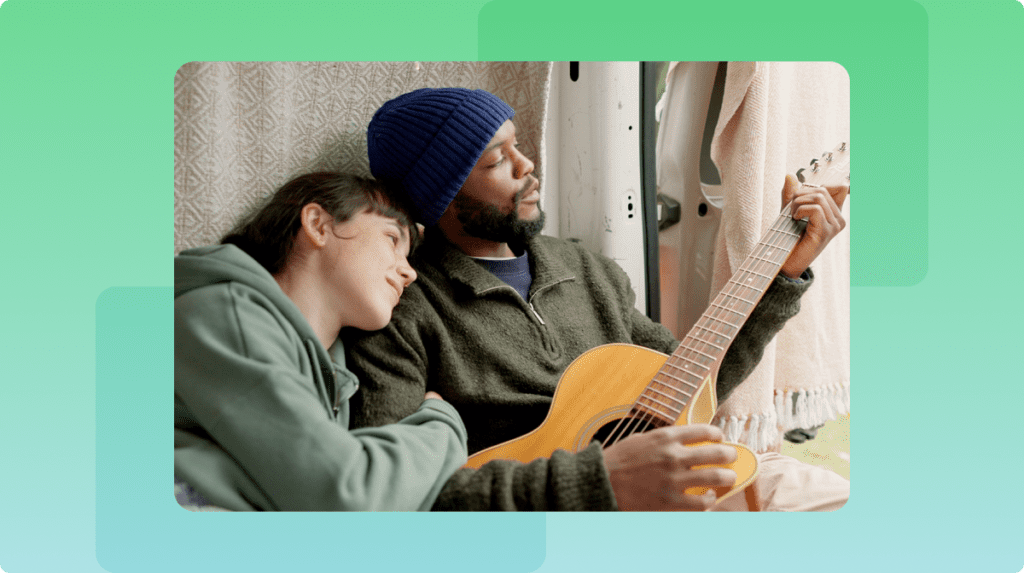Doubts are natural in any relationship – moments when you wonder if you’re truly in love or if the connection you share is right. But for some people, these doubts can spiral out of control, becoming intrusive, persistent, and anxiety-driven. If you’re constantly questioning your love for your partner or your partner’s feelings toward you, it may not just be normal uncertainty – but it could also be a sign of relationship OCD (ROCD).
In this article, we’ll explore what relationship OCD is, what differentiates it from other relationship doubts, and the treatment options that can help you regain peace of mind.
What is Relationship OCD (ROCD)?
Relationship OCD is a form of obsessive-compulsive disorder that centers on doubts about your romantic relationship. In some instances, the fears can focus on friendships, family members, and even pets. People with relationship OCD experience intrusive thoughts, such as:
- “What if I don’t really love my partner?”
- “What if I’m attracted to someone else?”
- “What if I’m making a mistake by staying?”
- “What if my partner cheated?”
These thoughts can trigger intense anxiety that can leave them feeling trapped and unsure of their emotions. To relieve the distress, people often engage in compulsions like reassurance-seeking, constant comparison to others, or mentally reviewing the relationship for evidence of “true love.” These compulsive behaviors provide temporary relief, but over time, they strengthen the cycle of anxiety and doubt, making it even harder to break free from these obsessive patterns. As the cycle intensifies, it can erode the quality of the relationship and leave the individual feeling disconnected from their partner.
Relationship OCD is fairly common, with 51.3% of people with OCD self-reporting intrusive thoughts and compulsions related to their partner or relationship.
What’s the Difference Between Normal Doubts and Relationship OCD?
It’s natural to have occasional doubts in a relationship — especially when conflicts arise or things feel off. But relationship OCD is different. It’s driven by obsessive-compulsive disorder (OCD) rather than issues within the relationship itself. As Patrick McGrath, PhD, NOCD’s Chief Clinical Officer, explains: “ROCD makes you believe that you need to feel 100% certain about the state of your relationship, but this is an emphatic lie.”
Relationship OCD often masquerades as intuition or a “gut feeling,” but unlike intuition, it never brings true clarity. Instead of guiding you toward a decision or insight, ROCD keeps you stuck in loops of questioning, reassurance-seeking, and mental checking. The more you try to figure it out, the worse the uncertainty feels.
Here’s a quick rundown of normal relationship doubts vs. ROCD doubts:
| Normal doubts | ROCD doubts |
| Situational and short-lived | Persistent and intrusive |
| Related to specific conflicts or mismatches | Focus on uncertainty itself |
| Resolved by communication and time | Never fully resolved, even with reassurance |
| Don’t take over daily functioning | Cause distress, anxiety, and compulsions |
How is Relationship OCD Treated?
The most effective treatment for relationship OCD is Exposure and Response Prevention (ERP) therapy, the gold-standard, evidence-based treatment for OCD. Studies show that up to 80% of people with OCD experience a significant reduction in their symptoms with ERP.
ERP works by helping you gradually face relationship-related fears (such as uncertainty about love or attraction) without engaging in compulsions like reassurance-seeking, mental checking, or comparison. Over time, this retrains the brain to tolerate uncertainty and reduces the power of obsessive doubts.
While cognitive-based therapy (CBT) is helpful for many mental health conditions, CBT that isn’t tailored for OCD may be ineffective – or even reinforce compulsions. That’s why working with a therapist trained in ERP is essential.
Bottom line
Doubts are a normal part of any relationship, but if your worries feel intrusive, unrelenting, and anxiety-driven, they may be a sign of relationship OCD.
The good news is that ROCD is highly treatable. An OCD specialist trained in exposure and response prevention (ERP) can help you break free from the cycle of doubt and guide you toward effective, evidence-based treatment.
Key takeaways
- Persistent, intrusive relationship doubts can be a sign of relationship OCD (ROCD).
- ROCD is a subtype of OCD, not a reflection of your partner’s quality or your ability to love.
- The most effective treatment for ROCD is exposure and response prevention (ERP) therapy, sometimes combined with medication and other adjunctive therapies.
Find the right OCD therapist for you
All our therapists are licensed and trained in exposure and response prevention therapy (ERP), the gold standard treatment for OCD.

